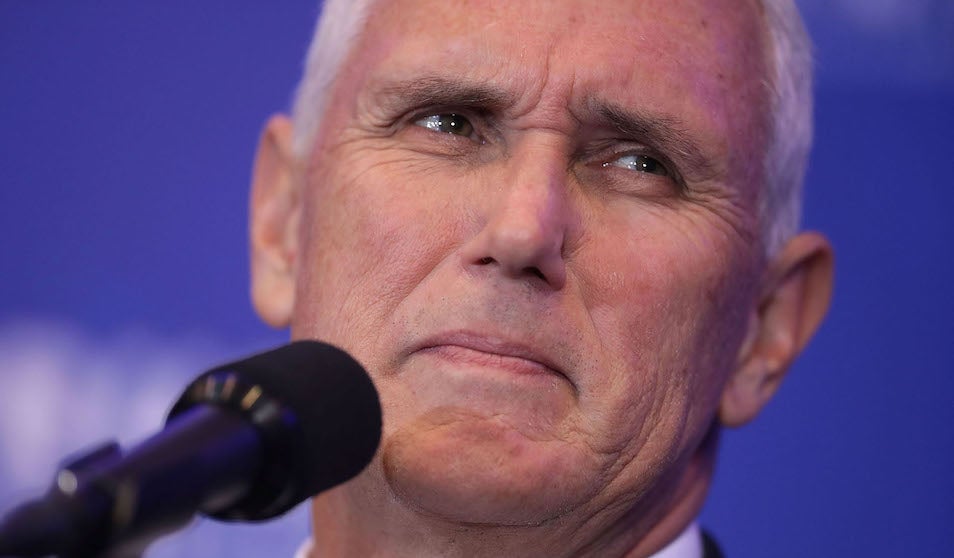Mike Pence wants to hide his government emails from the public
This could set dangerous precedent

Your support helps us to tell the story
From reproductive rights to climate change to Big Tech, The Independent is on the ground when the story is developing. Whether it's investigating the financials of Elon Musk's pro-Trump PAC or producing our latest documentary, 'The A Word', which shines a light on the American women fighting for reproductive rights, we know how important it is to parse out the facts from the messaging.
At such a critical moment in US history, we need reporters on the ground. Your donation allows us to keep sending journalists to speak to both sides of the story.
The Independent is trusted by Americans across the entire political spectrum. And unlike many other quality news outlets, we choose not to lock Americans out of our reporting and analysis with paywalls. We believe quality journalism should be available to everyone, paid for by those who can afford it.
Your support makes all the difference.Vice President-elect Mike Pence wants to shield his email from the public and his administration is going to court to keep them private, The Indianapolis Star reports.
This news comes after the Indiana governor attacked Hillary Clinton during the 2016 election, claiming she was unfit to serve as president over her use of a private email server during her time as secretary of state.
His administration is reportedly working to seal mysterious emails Mr Pence received from a political ally, The Star reports, that reportedly involves the governor hiring outside consultants— with Indiana taxpayer money — in relation to immigration law enforcement. The documents are currently being pursued by a prominent Democratic lawyer seeking to expose corruption amongst Republicans.
Legal experts say the case could set a dangerous precedent if the Pence administration gets their way. "It comes down to this — the court is giving up its ability to check another branch of government, and that should worry people," Gerry Lanosga, a media professor at Indiana University, told the newspaper.